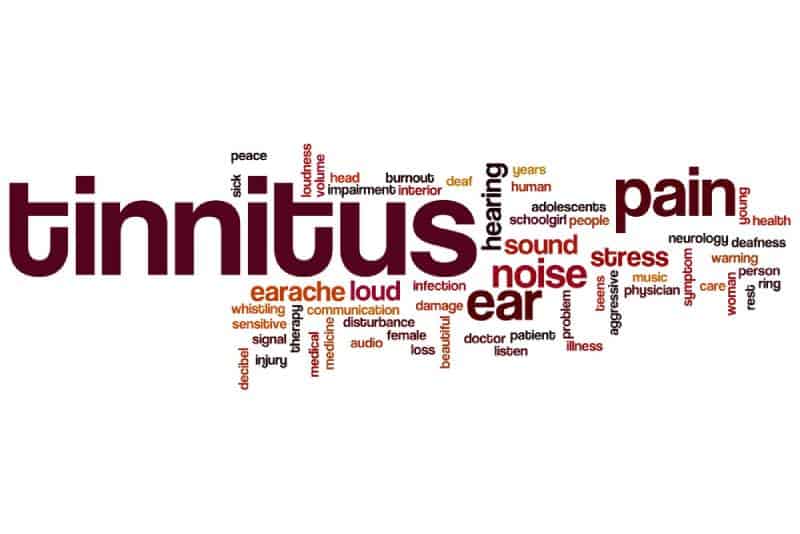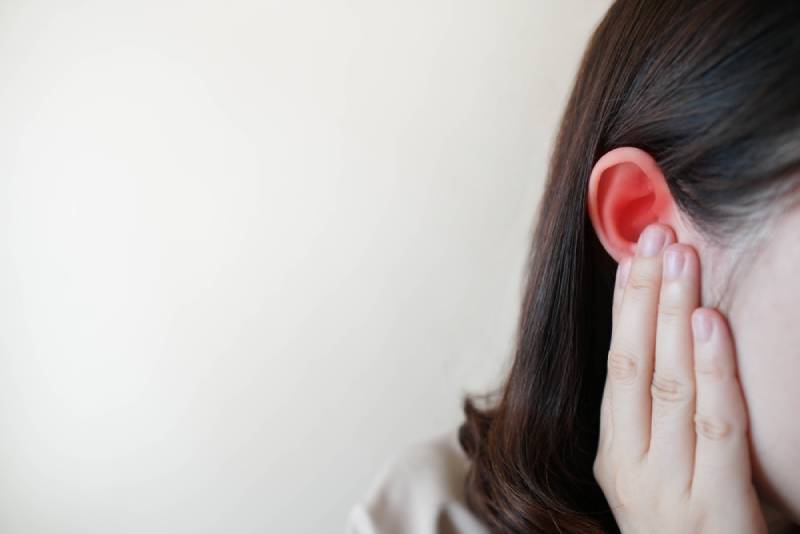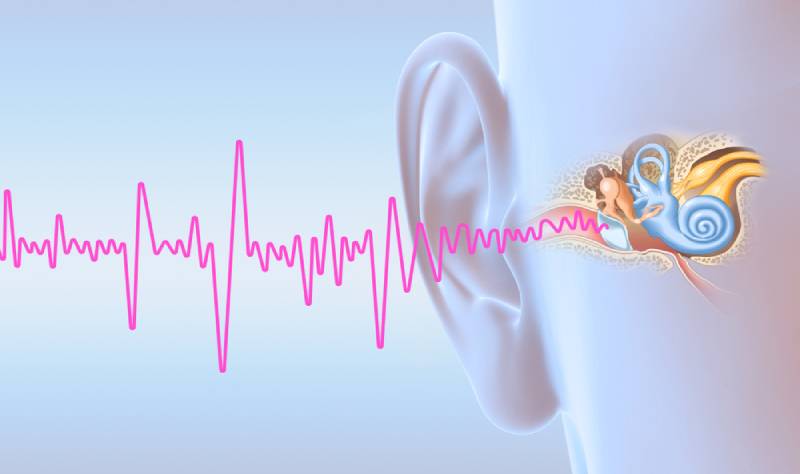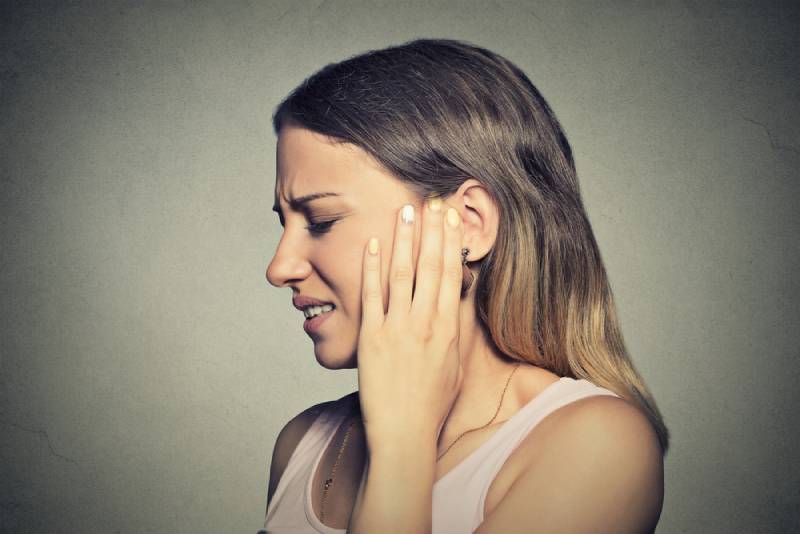Have you started to hear an odd humming noise since you became pregnant?
Something like the sound that used to come out of those old CRT TV sets that you could hear when the volume was muted?
Well, that annoying buzzing noise is a symptom of tinnitus and suffering from a tinnitus pregnancy is no laughing matter.

While tinnitus itself is more annoying than anything, the reasons why it appears can be a cause for concern – especially in pregnant women since one of the causes can be high blood pressure, which is not healthy for the baby or for you.
But how does it all occur and what can we do about it? That’s why I’m here today – to try and explain how to deal with tinnitus pregnancy as best as you can.
Why Does Tinnitus Occur?
Tinnitus isn’t just something that happens during pregnancy – it might be something you experienced when you were younger that had gone away and has chosen to flare up again now, during your most delicate of times.
The main causes of tinnitus usually boil down to a loud noise being blasted near your ears – like at a concert – which damages the inner ear, or some earwax build-up in the ear canal if you don’t clean properly (or again, from loud noise).
In older people it also happens due to the hearing loss degradation that tends to come with age.
The less common causes are usually linked to things such as Meniere’s disease, certain cardiovascular disorders like high blood pressure, otosclerosis, certain blood vessel problems, and even tumors.
The main causes usually only tend to inflict a temporary version of tinnitus, while the less common ones could last you a lifetime.
I’ve had issues with tinnitus since I was a kid.

My issue is high blood pressure because I am always stressed, so I’ve learned to live with it.
It was really tough to ignore the constant ringing during pregnancy, though, and it had certainly caused me a handful of sleepless nights.
The reason why it’s so much more apparent and much more likely to affect you during pregnancy is because a body produces up to ten times more progesterone during this time, which increases the chances of it occurring.
Regardless of what the cause is, whether permanent or temporary, you should still get it checked out, especially if you are a pregnant woman.
Don’t think that you’re crazy for hearing sounds or that it’s something to be embarrassed about – it affects over 15% of the population at some point in their life!
The Different Types Of Tinnitus
Yes, tinnitus actually has its own categorization – though it’s very loose. It’s divided into subjective and objective tinnitus.
Subjective tinnitus is the one only you can hear and is usually the result of some sort of hearing damage or your brain and its auditory nerves misinterpreting the vibrations of the air, replicating them back to you as this annoying static noise.
Objective tinnitus, on the other hand, is a humming noise a medical specialist can hear when you go for a checkup.
It’s usually caused by a disturbed blood flow due to high blood pressure, where that same blood flow is the source of the oddly pulsating noise you keep hearing.

The objective type, also referred to as pulsatile tinnitus, is the most common during pregnancy thanks to the high blood pressure and stress you may experience – the ringing itself fueling the very stress it’s caused by.
If that’s the case, it should hopefully go away at the end of your pregnancy and clarity and peace will be restored to your head after a week or two – after all the hormone levels have once again normalized in your body.
Then you can finally enjoy a buzz-free mind and divert your focus to the more pleasant noises, the one all of your efforts have made, your kids.
Symptoms Of Tinnitus
There aren’t many symptoms really, but there are some side effects to this whole ordeal.
The main symptom is the annoying buzzing, ringing, or humming noise you hear – people experience tinnitus differently depending on what the cause is.
Some of the side effects can also vary based on the cause, but during pregnancy you’ll usually experience some headaches of varying potency, blurred vision, and bouts of dizziness.
If it’s something that’s annoying you and that you can’t deal with, it can also contribute to stress – and even depression in some cases.
These are the reasons why I said you should consult a doctor or health-care provider the moment you start hearing the ringing, as they can help determine the exact source of the problem.
Why?

Well, while the symptoms of tinnitus might be harmless, they are an early warning sign of potential preeclampsia development, a rather serious condition that can lead to death for both you and your baby.
Preeclampsia occurs because of the high blood pressure and stress that can occur during pregnancy.
When these two conditions combine, they can lead to this underlying condition.
Preeclampsia is a condition where you start secreting protein in your urine, cuts take a longer time to coagulate, and an overall aching pain and headaches start to take hold.
If detected early, doctors can assign you proper treatment before the baby is born.
This usually includes taking it easy, trying to rest, and having others take care of your household chores and needs.
Treating Tinnitus
While there is no actual cure for tinnitus, there are plenty of treatment options for you to reduce the symptoms (thank God for that).
1. White noise and sound therapy

If you’re experiencing tinnitus problems, getting a white noise machine or simply turning on a relaxing music mix or some ASMR sounds can help you relax and drown the noise out, letting you get a peaceful night’s rest or helping you focus on a task.
This is arguably the most effective of methods and I can attest to it since I tend to fall asleep with my laptop near me from time to time, when the noise becomes too much to handle or when I don’t want to risk not falling asleep in good time.
2. Exercise and meditation

While it might sound silly, mild exercise or simple meditation exercises can help to reduce the effects of tinnitus greatly.
Workout in particular will help improve blood flow, in turn fixing the probable cause of your tinnitus, while meditation can help you deal with the stress-related part of tinnitus by putting your mind at ease and focusing on something else.
Make sure to not overdo it as far as exercise is concerned, though – you’re meant to be taking it easy during these times and becoming exhausted will only end up having a negative effect instead of the desired one.
Take some time to find a few light exercises – stretches, for example – to fit into a 15-20 minute light workout routine and you should feel a whole lot better.
3. Eating properly

Yes, even food can affect how you deal with problems in your life.
This means staying away from any junk food, caffeine, or any overly salty foods that can cause higher blood pressure than normal.
Stick to salads and unsalted proteins to keep you from losing any of the necessary nutrients while avoiding any potential trigger foods.
Especially stay away from any risky allergens that might cause an involuntary reaction in your gut and lead to more stress.
4. Remove any loud noise from your surroundings

If possible, you should try to stay in as quiet a room as possible without it being too unnerving.
Loud noise is one of the main causes of pulsatile tinnitus and if you already have it, it’ll only make matters worse for you.
This does mean that you might be unable to help out if you already have a child, but hopefully your partner can help you out.
5. Manage your stress

This is probably the most generalized treatment option, but it’s arguably the most impactful one.
We’ve talked about the countless ways of managing the stress that comes with motherhood before, and it’s even more important to take that advice now that you’re going through tinnitus pregnancy.
Stress is a huge subject that would need an article of its own to cover everything, but it’s definitely the leading cause of not only tinnitus developing into a long-lasting issue, but many other health-related risks and issues.
Thus, finding a way to reduce it is of utmost importance when it comes to any potential issue you may have, doubly so during pregnancy when you’re in such a hypersensitive state.
6. Medication

I’m not talking about any random medication, but taking certain supplements – especially zinc.
While a regular pregnancy vitamin should cover most of what you need, an additional consultation with your health-care provider may help you determine if you need to take any further supplements to your diet.
This is especially true if your pregnancy diet doesn’t contain all of the necessary nutrients – not to mention that your dietary needs have shifted due to, well, pregnancy.
Is Tinnitus A Permanent Issue?
It really depends on what’s causing it. If you’ve only started to suffer from it during pregnancy, chances are that it’s only going to last for as long as the pregnancy does, so there’s no real need to worry in that regard.
However, your pregnancy might be the reason that you’ve noticed it in the first place, as being pregnant causes the body to produce more hormones to keep the mother more aware of her surroundings.
It’s called being in a state of hypersensitivity and it’s the reason why things agitate us so much more during pregnancy.

It may be that being pregnant made you notice you had tinnitus in the first place, which is why I specified you should get a checkup to see if this was something you had prior to the pregnancy or not.
Maybe you’ll discover an underlying health issue or potential damage to your hearing this way and you’ll end up fixing it. Hypersensitivity isn’t all bad it seems – ha!
Can Tinnitus Cause Hearing Damage?
No, not really. It can be a symptom of underlying hearing damage, but on its own, tinnitus is just annoying to live with.
If anything, it’s an alarm for you to check what’s causing it and will hopefully die down when the cause is identified and treated.
Living With Tinnitus
Take it from me, it isn’t easy to live with the issue at first, especially when people ignore your needs in the beginning.
I became affected by tinnitus at the age of 9 and have suffered ever since. Initially I wasn’t quite sure what it was, but I kept telling my parents I could hear the sound of the TV even when it was off.
They, along with everyone else – including me – just brushed it off, saying that it was fine and that it would pass.
Sadly, it didn’t and it lingered. Sometimes it was quiet, but there were periods when it flared up and gave me this weird, dull headache as it increased in volume for a short period of time.
I had trouble concentrating on my tasks. I would forget what had been said to me as I tried to ignore the buzzing while at the same time focus on what was being said to me, leading me to ask people to repeat themselves all the time.

This made me seem rude, despite me trying not to be.
I was ashamed to tell people I could hear a noise in my head because I was scared they would think I was crazy and send me away (I was a real panicky child with a vivid imagination back then).
It made it hard for me to sleep, too, as there were times when it would just be too much to handle. Thankfully once I went to sleep it never woke me up.
Once I got to about the age of 15, I finally convinced my parents to take me to an otolaryngology specialist.
He told us that the whooshing noise I could hear was, in fact, tinnitus and that it was caused by my unusually high blood pressure.
This word, this condition – it was something none of us had ever heard of before, which was the reason why my parents didn’t really think of it as a problem when I was younger.
This meant it went ignored for 7 long years.
After that visit, the doctor told me to try taking it easy. I did some blood tests to see if there was anything specific that was causing this issue, but nothing much came up outside of ˝too much stress˝, something the tinnitus itself was contributing to.
So I started consuming fewer salty foods, fewer sodas and other caffeinated drinks, watching what I ate, and trying to find other ways to reduce stress.
Unfortunately, I wasn’t lucky enough to eliminate it fully and it may be with me for a while longer because what works for others stress-relief wise doesn’t really work for me.
The symptoms did reduce, though, after the changes to my diet and it’s only a mild annoyance now.
Well, that and the fact that I’ve been living with it for so long that I’ve gotten accustomed to it always being there (thankfully it’s only in one ear at a time).
I did however start consulting a psychiatrist to help me try and cope with my stress issues as high blood pressure is not good for you, tinnitus or not.

During my two pregnancies though… oh boy. If anything made me regret having kids at any point in my life, it was this nasty thing.
It was ever present in full force during the full durations of both of them and if it weren’t for my resolve that had gotten iron-clad from living with this thing for almost my whole life, I would’ve broken.
It was as if someone had taken the tinnitus dial that goes from 1/10 and cranked it all the way up to 25.
There were times where I could hear nothing but the buzzing and it made me feel awful inside.
I needed a ton of calming medication during that period to help me through it. I managed, though, and now I’m a mother to two lovely kids.
In Conclusion
A tinnitus pregnancy can be a tough period of your life, especially if it’s your first time dealing with it.
What you need to know is that you aren’t crazy or weird for hearing these noises and that it’s actually quite a common thing to happen during pregnancy – in fact it affects nearly a third of pregnant women worldwide.
If the symptoms of tinnitus start occuring, don’t hesitate to inform your family doctor or any other medical specialist so you can start treating it early.
There’s no need to let a problem linger, take it from someone who’s been experiencing it most of her life.
If you’re lucky, it’ll pass by the end of your pregnancy. if it doesn’t, it might have been an underlying issue that’s been with you for a long time but that’s only come to light now you are carrying your little one in your womb.
The sooner you get to the root cause, the sooner you can potentially eliminate it.
I hope this article has helped you deal with this rather bothersome annoyance of a health issue.
Also, do understand that these are just meant to be guidelines on dealing with tinnitus.
Don’t put off going to the doctor’s, they’ll be able to give you more detailed advice than I ever could.
Like this post? Please share or pin it for later. You can also stay in the loop and follow us on Facebook, Instagram and Pinterest.

This post contains affiliate links. Please see our full disclosure for more info.

